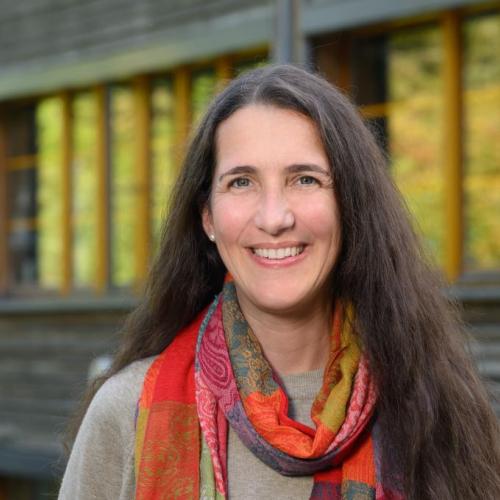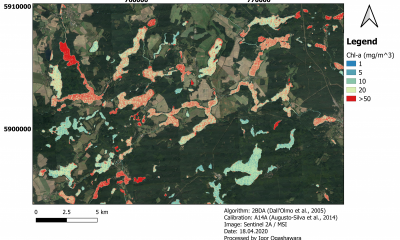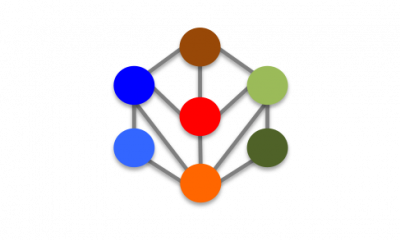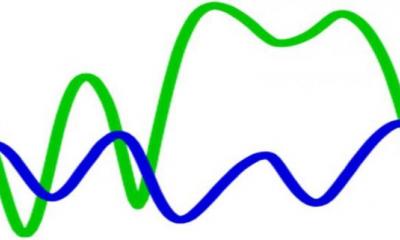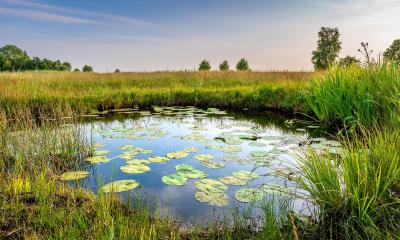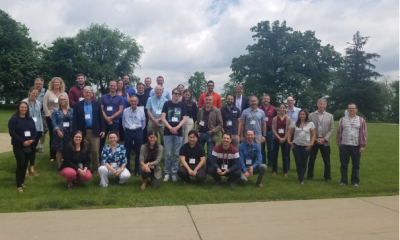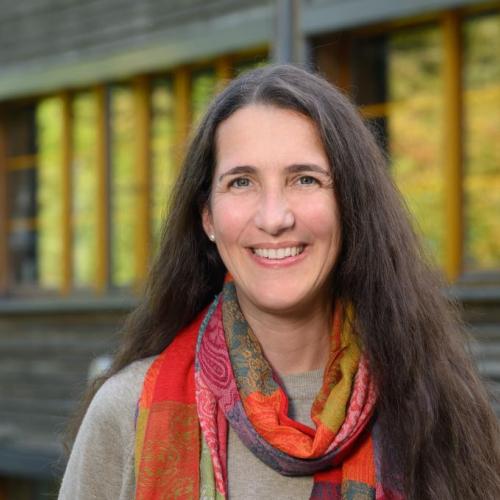
Theoretical Ecology

Department
Group profile
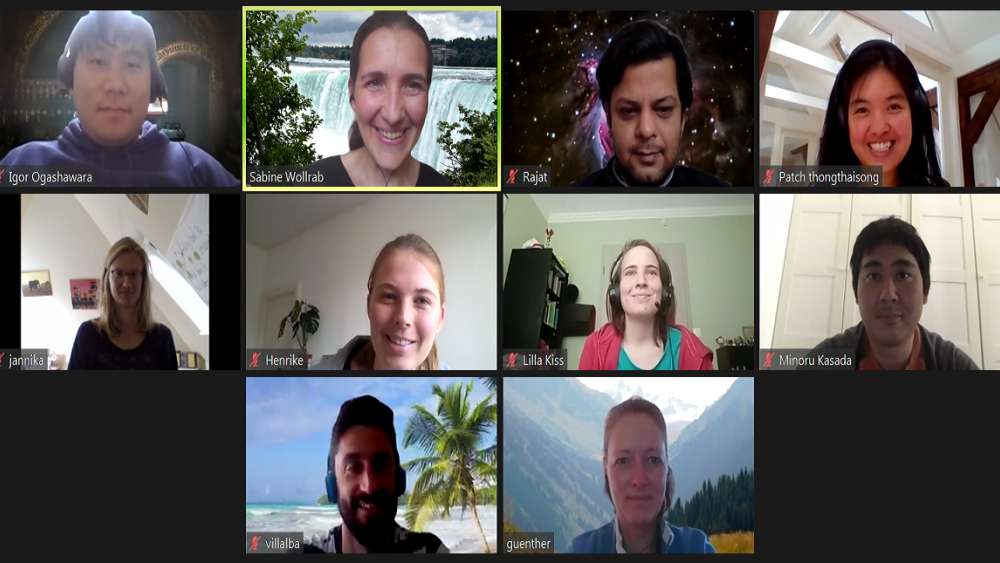
The research focus of the theoretical ecology group is on food web dynamics in aquatic systems and its dependency on environmental conditions. Study systems range from little pond systems to lakes, from local communities to meta-communities and meta-ecosystems. The aim of the theoretical ecology group is to further develop theoretical concepts in aquatic biology and thus improve the understanding of adaptation processes of aquatic systems to environmental changes.
Key questions are:
- How will climate change and anthropogenic forcing influence aquatic community and ecosystem dynamics?
- What energy pathways dominate under which environmental conditions and how does this influence ecosystem functioning like lake productivity and ecosystem services like water quality and provisioning of food?
- How does spatial distribution and connection to other aquatic systems influence biodiversity and ecosystem functioning?
Publications
Publications
2025
June 2025
Sabine Wollrab; Silke R. Schmidt; Jason Woodhouse; Peter Kasprzak; Stella A. Berger; Ute Beyer; Matthias Bodenlos; Johanna Dalchow; Monika Degebrodt; Lars Ganzert; Thomas Gonsiorczyk; Elfi Huth; Christine Kiel; Lutz Küchler; Lothar Krienitz; Maren Lentz; Elke Mach; Uta Mallok; Jens C. Nejstgaard; Monika Papke; Armin Penske; Solvig Pinnow; Reingard Roßberg; Diethelm Ronneberger; Michael Sachtleben; Adelheid Scheffler; Hans-Peter Grossart; Peter Casper; Mark O. Gessner; Rainer Koschel
Fifty years of limnological data on Lake Stechlin, a temperate clearwater lake
Scientific Data. - 12(2025), Art. 1028
April 2025
Patch Thongthaisong; Minoru Kasada; Hans-Peter Grossart; Sabine Wollrab
Longer durability of host–parasite interaction increases host density
Oikos. - 2025(2025)6, Art. e11029
March 2025
Ellen van Velzen; Sabine Wollrab; Onur Kerimoglu; Ursula Gaedke; Hans-Peter Grossart; Minoru Kasada; Helena C. L. Klip; Stefanie Moorthi; Tom Shatwell; Patch Thongthaisong; A. E. Friederike Prowe
Flexibility in Aquatic Food Web Interactions: Linking Scales and Approaches
Ecosystems. - 28(2025), Art. 23
February 2025
Jeremy Fonvielle; Lukas Thuile Bistarelli; Yile Tao; Jason N. Woodhouse; Tom Shatwell; Luis A. Villalba; Stella A. Berger; Christopher C.M. Kyba; Jens C. Nejstgaard; Andreas Jechow; Franziska Kupprat; Susanne Stephan; Tim J.W. Walles; Sabine Wollrab; Franz Hölker; Thorsten Dittmar; Mark O. Gessner; Gabriel A. Singer; Hans-Peter Grossart
Skyglow increases cyanobacteria abundance and organic matter cycling in lakes
Water Research. - 278(2025), Art. 123315
2024
October 2024
Andreas Jechow; Jan Bumberger; Bert Palm; Paul Remmler; Günter Schreck; Igor Ogashawara; Christine Kiel; Katrin Kohnert; Hans-Peter Grossart; Gabriel A. Singer; Jens C. Nejstgaard; Sabine Wollrab; Stella A. Berger; Franz Hölker
April 2024
Thomas Mehner; Sabine Wollrab; Thomas Gonsiorczyk; Jens Nejstgaard
January 2024
Pierre Quévreux; Ulrich Brose; Núria Galiana; Anton Potapov; Élisa Thébault; Morgane Travers-Trolet; Sabine Wollrab; Franck Jabot
Perspectives in modelling ecological interaction networks for sustainable ecosystem management
Journal of Applied Ecology. - XX(2024)XX, XX-XX
2023
January 2024
Verantwortliche Autor*innen: Hans-Peter Grossart; Sabine Hilt; Luc De Meester; Thomas Mehner; Michael Monaghan; Camille Musseau; Stephanie Spahr; Matthias Stöck; Sabine Wollrab
October 2023
Verantwortliche Autor*innen: Hans-Peter Grossart; Sabine Hilt; Luc De Meester; Thomas Mehner; Michael Monaghan; Camille Musseau; Stephanie Spahr; Matthias Stöck; Sabine Wollrab
2022
January 2023
Alexis D. Synodinos; Rajat Karnatak; Carlos A. Aguilar-Trigueros; Pierre Gras; Tina Heger; Danny Ionescu; Stefanie Maaß; Camille L. Musseau; Gabriela Onandia; Aimara Planillo; Lina Weiss; Sabine Wollrab; and Masahiro Ryo
The rate of environmental change as an important driver across scales in ecology
Oikos. - (2022), Art. e09616
December 2022
von: Stephan Garack, Marco Neubert, Axel Sauer, Juliane Albrecht Leibniz-Institut für ökologische Raumentwicklung (IÖR) e. V., Dresden; Kerstin Günther, Martin Friedrichs-Manthey, Sabine Wollrab, Sonja Jähnig, Stella A. Berger, Ulrike Kienel, Georgiy Kirillin, Leibniz-Institut für Gewässerökologie und Binnenfischerei (IGB) im Forschungsverbund Berlin e. V., Berlin. Herausgeber: Umweltbundesamt
December 2022
Patch Thongthaisong; Minoru Kasada; Hans-Peter Grossart; Sabine Wollrab
Critical role of parasite-mediated energy pathway on community response to nutrient enrichment
Ecology and Evolution. - 12(2022)12, Art. e9622
November 2022
Patch Thongthaisong ... Minoru Kasada ... Hans-Peter Grossart ... Sabine Wollrab
September 2022
Malgorzata Golub; Wim Thiery; Rafael Marcé; Don Pierson; Inne Vanderkelen; Daniel Mercado-Bettin; R. Iestyn Woolway; Luke Grant; Eleanor Jennings; Benjamin M. Kraemer; Jacob Schewe; Fang Zhao; Katja Frieler; Matthias Mengel; Vasiliy Y. Bogomolov; Damien Bouffard ... Georgiy Kirillin ... Tom Shatwell ... Rita Adrian ... Sabine Wollrab ...
A framework for ensemble modelling of climate change impacts on lakes worldwide: the ISIMIP Lake Sector
Geoscientific Model Development. - 15(2022), 4597–4623
September 2022
Luis Alberto Villalba; Minoru Kasada; Luca Zoccarato; Sabine Wollrab; Hans Peter Grossart
Differing escape responses of the marine bacterium Marinobacter adhaerens in the presence of planktonic vs. surface-associated protist grazers
Molecular Biology and Evolution. - 23(2022)17, Art. 10082
June 2022
D. Ionescu; M. Bizic; R. Karnatak; C.L. Musseau; G. Onandia; M. Kasada; S.A. Berger; J.C. Nejstgaard; M. Ryo; G. Lischeid; M.O. Gessner; S. Wollrab; H.-P. Grossart
From microbes to mammals: pond biodiversity homogenization across different land-use types in an agricultural landscape
Ecological monographs. - 92(2022)3, Art. e1523
May 2022
Luis Alberto Villalba; Rajat Karnatak; Hans-Peter Grossart; Sabine Wollrab
Flexible habitat choice of pelagic bacteria increases system stability and energy flow through the microbial loop
Limnology and Oceanography. - 67(2022)6, 1402-1415
May 2022
Bernhard Aichner; David Dubbert; Christine Kiel; Katrin Kohnert; Igor Ogashawara; Andreas Jechow; Sarah-Faye Harpenslager; Franz Hölker; Jens Christian Nejstgaard; Hans-Peter Grossart; Gabriel Singer; Sabine Wollrab; Stella Angela Berger
Spatial and seasonal patterns of water isotopes in northeastern German lakes
Earth system science data. - 14(2021)4, S. 1857–1867
March 2022
Stephan Garack (Dresden); Sabine Wollrab; Sonja Jähnig; Kerstin Günther; Stella A. Berger (Berlin); Marco Neubert; Juliane Albrecht (Dresden); Martin Friedrichs-Manthey (Berlin/Leipzig); Axel Sauer (Dresden); Georgyi Kirillin (Berlin)
Entwicklung der ökologischen Beschaffenheit von Oberflächengewässern im Klimawandel
KW Korrespondenz Wasserwirtschaft. - 15(2022)2, 98-107
March 2022
Mina Bizic; Danny Ionescu; Rajat Karnatak; Camille L. Musseau; Gabriela Onandia; Stella A. Berger; Jens C. Nejstgaard; Gunnar Lischeid; Mark O. Gessner; Sabine Wollrab; Hans-Peter Grossart
Land-use type temporarily affects active pond community structure but not gene expression patterns
Molecular Ecology. - 31(2022)6, 1716-1734
2021
January 2022
Danny Ionescu; Mina Bizic; Rajat Karnatak; Camille L. Musseau; Gabriela Onandia; Stella Angela Berger; Jens Nejstgaard; Gunnar Lischeid; Mark O. Gessner; Sabine Wollrab; Hans-Peter Grossart
From microbes to mammals: agriculture homogenizes pond biodiversity across different land-use types
ARPHA Conference Abstracts. - 4(2021), Art. e65062
December 2021
Andreas Jechow; Günther Schreck; Christopher C. M. Kyba; Stella A. Berger; Lukas Thuile Bistarelli; Matthias Bodenlos; Mark O. Gessner; Hans-Peter Grossart; Franziska Kupprat; Jens C. Nejstgaard; Andreas Pansch; Armin Penske; Michael Sachtleben; Tom Shatwell; Gabriel A. Singer; Susanne Stephan; Tim J. W. Walles; Sabine Wollrab; Karolina M. Zielinska-Dabkowska; Franz Hölker
Design and implementation of an illumination system to mimic skyglow at ecosystem level in a large-scale lake enclosure facility
Scientific Reports. - 11(2021), Art. 23478
April 2021
Igor Ogashawara; Christine Kiel; Andreas Jechow; Katrin Kohnert; Thomas Ruhtz; Hans-Peter Grossart; Franz Hölker; Jens C. Nejstgaard; Stella A. Berger; Sabine Wollrab
March 2021
Sabine Wollrab; Lyubov Izmest’yeva (Любовь Р. Изместьева); Stephanie E. Hampton; Eugene A. Silow (Евгений А. Зилов); Elena Litchman; Christopher A. Klausmeier
Climate change – driven regime shifts in a planktonic food web
The American Naturalist. - 197(2021)3, 281-295
March 2021
Stella Berger, Mark Gessner, Tobias Goldhammer, Thomas Gonsiorczyk, Hans-Peter Grossart, Sabine Hilt, Michael Hupfer, Andreas Hussner, Jörg Lewandowski, Thomas Mehner, Jens Nejstgaard, Sabine Wollrab
2020
December 2020
Rajat Karnatak; Sabine Wollrab
A probabilistic approach to dispersal in spatially explicit meta‑populations
Scientific Reports. - 10(2020), art. 22234
August 2020
Igor Ogashawara; Andreas Jechow; Christine Kiel; Katrin Kohnert; Stella A. Berger; Sabine Wollrab
Performance of the Landsat 8 Provisional Aquatic Reflectance product for inland waters
Remote Sensing. - 12(2020)15, 2410
January 2020
Sabine Wollrab; Philippe Pondaven; Stephan Behl; Beatriz Beker; Herwig Stibor
2017
June 2017
Rajat Karnatak; Sabine Wollrab
Mixotrophy and intraguild predation - dynamic consequences of shifts between food web motifs
European Physical Journal Special Topics. - 226(2017)9, S. 2135-2144
2015
May 2015
Sabine Wollrab; Sebastian Diehl
Bottom-up responses of the lower oceanic food web are sensitive to copepod mortality and feeding behavior
Limnology and Oceanography. - 60(2015)2, S. 641-656
June 2025
Sabine Wollrab; Silke R. Schmidt; Jason Woodhouse; Peter Kasprzak; Stella A. Berger; Ute Beyer; Matthias Bodenlos; Johanna Dalchow; Monika Degebrodt; Lars Ganzert; Thomas Gonsiorczyk; Elfi Huth; Christine Kiel; Lutz Küchler; Lothar Krienitz; Maren Lentz; Elke Mach; Uta Mallok; Jens C. Nejstgaard; Monika Papke; Armin Penske; Solvig Pinnow; Reingard Roßberg; Diethelm Ronneberger; Michael Sachtleben; Adelheid Scheffler; Hans-Peter Grossart; Peter Casper; Mark O. Gessner; Rainer Koschel
Fifty years of limnological data on Lake Stechlin, a temperate clearwater lake
Scientific Data. - 12(2025), Art. 1028
April 2025
Patch Thongthaisong; Minoru Kasada; Hans-Peter Grossart; Sabine Wollrab
Longer durability of host–parasite interaction increases host density
Oikos. - 2025(2025)6, Art. e11029
March 2025
Ellen van Velzen; Sabine Wollrab; Onur Kerimoglu; Ursula Gaedke; Hans-Peter Grossart; Minoru Kasada; Helena C. L. Klip; Stefanie Moorthi; Tom Shatwell; Patch Thongthaisong; A. E. Friederike Prowe
Flexibility in Aquatic Food Web Interactions: Linking Scales and Approaches
Ecosystems. - 28(2025), Art. 23
February 2025
Jeremy Fonvielle; Lukas Thuile Bistarelli; Yile Tao; Jason N. Woodhouse; Tom Shatwell; Luis A. Villalba; Stella A. Berger; Christopher C.M. Kyba; Jens C. Nejstgaard; Andreas Jechow; Franziska Kupprat; Susanne Stephan; Tim J.W. Walles; Sabine Wollrab; Franz Hölker; Thorsten Dittmar; Mark O. Gessner; Gabriel A. Singer; Hans-Peter Grossart
Skyglow increases cyanobacteria abundance and organic matter cycling in lakes
Water Research. - 278(2025), Art. 123315
October 2024
Andreas Jechow; Jan Bumberger; Bert Palm; Paul Remmler; Günter Schreck; Igor Ogashawara; Christine Kiel; Katrin Kohnert; Hans-Peter Grossart; Gabriel A. Singer; Jens C. Nejstgaard; Sabine Wollrab; Stella A. Berger; Franz Hölker
April 2024
Thomas Mehner; Sabine Wollrab; Thomas Gonsiorczyk; Jens Nejstgaard
January 2024
Pierre Quévreux; Ulrich Brose; Núria Galiana; Anton Potapov; Élisa Thébault; Morgane Travers-Trolet; Sabine Wollrab; Franck Jabot
Perspectives in modelling ecological interaction networks for sustainable ecosystem management
Journal of Applied Ecology. - XX(2024)XX, XX-XX
January 2024
Verantwortliche Autor*innen: Hans-Peter Grossart; Sabine Hilt; Luc De Meester; Thomas Mehner; Michael Monaghan; Camille Musseau; Stephanie Spahr; Matthias Stöck; Sabine Wollrab
October 2023
Verantwortliche Autor*innen: Hans-Peter Grossart; Sabine Hilt; Luc De Meester; Thomas Mehner; Michael Monaghan; Camille Musseau; Stephanie Spahr; Matthias Stöck; Sabine Wollrab
January 2023
Alexis D. Synodinos; Rajat Karnatak; Carlos A. Aguilar-Trigueros; Pierre Gras; Tina Heger; Danny Ionescu; Stefanie Maaß; Camille L. Musseau; Gabriela Onandia; Aimara Planillo; Lina Weiss; Sabine Wollrab; and Masahiro Ryo
The rate of environmental change as an important driver across scales in ecology
Oikos. - (2022), Art. e09616
December 2022
von: Stephan Garack, Marco Neubert, Axel Sauer, Juliane Albrecht Leibniz-Institut für ökologische Raumentwicklung (IÖR) e. V., Dresden; Kerstin Günther, Martin Friedrichs-Manthey, Sabine Wollrab, Sonja Jähnig, Stella A. Berger, Ulrike Kienel, Georgiy Kirillin, Leibniz-Institut für Gewässerökologie und Binnenfischerei (IGB) im Forschungsverbund Berlin e. V., Berlin. Herausgeber: Umweltbundesamt
December 2022
Patch Thongthaisong; Minoru Kasada; Hans-Peter Grossart; Sabine Wollrab
Critical role of parasite-mediated energy pathway on community response to nutrient enrichment
Ecology and Evolution. - 12(2022)12, Art. e9622
November 2022
Patch Thongthaisong ... Minoru Kasada ... Hans-Peter Grossart ... Sabine Wollrab
September 2022
Malgorzata Golub; Wim Thiery; Rafael Marcé; Don Pierson; Inne Vanderkelen; Daniel Mercado-Bettin; R. Iestyn Woolway; Luke Grant; Eleanor Jennings; Benjamin M. Kraemer; Jacob Schewe; Fang Zhao; Katja Frieler; Matthias Mengel; Vasiliy Y. Bogomolov; Damien Bouffard ... Georgiy Kirillin ... Tom Shatwell ... Rita Adrian ... Sabine Wollrab ...
A framework for ensemble modelling of climate change impacts on lakes worldwide: the ISIMIP Lake Sector
Geoscientific Model Development. - 15(2022), 4597–4623
September 2022
Luis Alberto Villalba; Minoru Kasada; Luca Zoccarato; Sabine Wollrab; Hans Peter Grossart
Differing escape responses of the marine bacterium Marinobacter adhaerens in the presence of planktonic vs. surface-associated protist grazers
Molecular Biology and Evolution. - 23(2022)17, Art. 10082
June 2022
D. Ionescu; M. Bizic; R. Karnatak; C.L. Musseau; G. Onandia; M. Kasada; S.A. Berger; J.C. Nejstgaard; M. Ryo; G. Lischeid; M.O. Gessner; S. Wollrab; H.-P. Grossart
From microbes to mammals: pond biodiversity homogenization across different land-use types in an agricultural landscape
Ecological monographs. - 92(2022)3, Art. e1523
May 2022
Luis Alberto Villalba; Rajat Karnatak; Hans-Peter Grossart; Sabine Wollrab
Flexible habitat choice of pelagic bacteria increases system stability and energy flow through the microbial loop
Limnology and Oceanography. - 67(2022)6, 1402-1415
May 2022
Bernhard Aichner; David Dubbert; Christine Kiel; Katrin Kohnert; Igor Ogashawara; Andreas Jechow; Sarah-Faye Harpenslager; Franz Hölker; Jens Christian Nejstgaard; Hans-Peter Grossart; Gabriel Singer; Sabine Wollrab; Stella Angela Berger
Spatial and seasonal patterns of water isotopes in northeastern German lakes
Earth system science data. - 14(2021)4, S. 1857–1867
March 2022
Stephan Garack (Dresden); Sabine Wollrab; Sonja Jähnig; Kerstin Günther; Stella A. Berger (Berlin); Marco Neubert; Juliane Albrecht (Dresden); Martin Friedrichs-Manthey (Berlin/Leipzig); Axel Sauer (Dresden); Georgyi Kirillin (Berlin)
Entwicklung der ökologischen Beschaffenheit von Oberflächengewässern im Klimawandel
KW Korrespondenz Wasserwirtschaft. - 15(2022)2, 98-107
March 2022
Mina Bizic; Danny Ionescu; Rajat Karnatak; Camille L. Musseau; Gabriela Onandia; Stella A. Berger; Jens C. Nejstgaard; Gunnar Lischeid; Mark O. Gessner; Sabine Wollrab; Hans-Peter Grossart
Land-use type temporarily affects active pond community structure but not gene expression patterns
Molecular Ecology. - 31(2022)6, 1716-1734
January 2022
Danny Ionescu; Mina Bizic; Rajat Karnatak; Camille L. Musseau; Gabriela Onandia; Stella Angela Berger; Jens Nejstgaard; Gunnar Lischeid; Mark O. Gessner; Sabine Wollrab; Hans-Peter Grossart
From microbes to mammals: agriculture homogenizes pond biodiversity across different land-use types
ARPHA Conference Abstracts. - 4(2021), Art. e65062
December 2021
Andreas Jechow; Günther Schreck; Christopher C. M. Kyba; Stella A. Berger; Lukas Thuile Bistarelli; Matthias Bodenlos; Mark O. Gessner; Hans-Peter Grossart; Franziska Kupprat; Jens C. Nejstgaard; Andreas Pansch; Armin Penske; Michael Sachtleben; Tom Shatwell; Gabriel A. Singer; Susanne Stephan; Tim J. W. Walles; Sabine Wollrab; Karolina M. Zielinska-Dabkowska; Franz Hölker
Design and implementation of an illumination system to mimic skyglow at ecosystem level in a large-scale lake enclosure facility
Scientific Reports. - 11(2021), Art. 23478
April 2021
Igor Ogashawara; Christine Kiel; Andreas Jechow; Katrin Kohnert; Thomas Ruhtz; Hans-Peter Grossart; Franz Hölker; Jens C. Nejstgaard; Stella A. Berger; Sabine Wollrab
March 2021
Sabine Wollrab; Lyubov Izmest’yeva (Любовь Р. Изместьева); Stephanie E. Hampton; Eugene A. Silow (Евгений А. Зилов); Elena Litchman; Christopher A. Klausmeier
Climate change – driven regime shifts in a planktonic food web
The American Naturalist. - 197(2021)3, 281-295
March 2021
Stella Berger, Mark Gessner, Tobias Goldhammer, Thomas Gonsiorczyk, Hans-Peter Grossart, Sabine Hilt, Michael Hupfer, Andreas Hussner, Jörg Lewandowski, Thomas Mehner, Jens Nejstgaard, Sabine Wollrab
December 2020
Rajat Karnatak; Sabine Wollrab
A probabilistic approach to dispersal in spatially explicit meta‑populations
Scientific Reports. - 10(2020), art. 22234
August 2020
Igor Ogashawara; Andreas Jechow; Christine Kiel; Katrin Kohnert; Stella A. Berger; Sabine Wollrab
Performance of the Landsat 8 Provisional Aquatic Reflectance product for inland waters
Remote Sensing. - 12(2020)15, 2410
January 2020
Sabine Wollrab; Philippe Pondaven; Stephan Behl; Beatriz Beker; Herwig Stibor
June 2017
Rajat Karnatak; Sabine Wollrab
Mixotrophy and intraguild predation - dynamic consequences of shifts between food web motifs
European Physical Journal Special Topics. - 226(2017)9, S. 2135-2144
May 2015
Sabine Wollrab; Sebastian Diehl
Bottom-up responses of the lower oceanic food web are sensitive to copepod mortality and feeding behavior
Limnology and Oceanography. - 60(2015)2, S. 641-656


